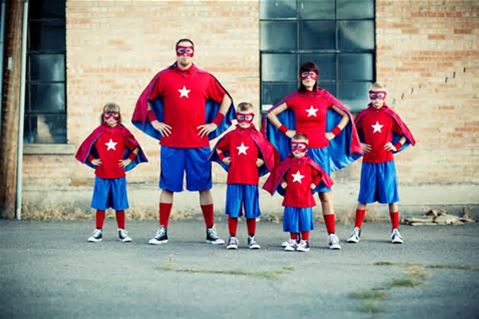
08 Apr It Takes Courage to Raise Courageous Kids
It takes courage to be a teen.
Courage is not the absence of fear but the confidence to take a known risk for a known purpose. It takes courage for a teen to work at making good friends, trying out for a school play, or telling an adult where they might be mistaken on an important issue. With each of those attempts come big risks—risks that might not pay off in obvious ways. So a teen has to have a good deal of confidence to put an effort into something that might not turn out as he or she had hoped.
Where does that courage come from? It usually comes from parents.
Michael Popkin created an exceptionally effective parent education program called Active Parenting of Teens. “Active parenting” is the term he uses to describe interacting with kids in a thoughtful way, always mindful of what we hope to help them accomplish. He suggests that many parents accidently rob their children of the confidence that helps them to try hard things worthy of the effort. He states that there are four ways we commonly discourage teens: focusing on mistakes and weaknesses, expecting the worst (or too little), expecting too much, and overprotecting or pampering them.
It is tempting to focus on the mistakes our children make. After all, they are not likely to grow and learn unless we point out where they messed up, right? You know better. You know that you have learned valuable lessons through making mistakes, and that you only learned through successes in those areas you had the confidence to try.
Wise parents build on their teens strengths, acknowledging what they do well. Your son or daughter certainly makes more good decisions each day than bad, even if the negative ones are easier to notice. It is well worth the effort to retrain yourself to catch kids being good. You can also encourage them to take the next step in something they are doing well, to further build on strengths.
At 15 I approached my father about buying a truck with my summer earnings. He responded, “You’ve always been responsible and level-headed. I’ll have to talk it over with your mother, but I think you can handle this.” As much as I enjoyed the truck, I will never forget the moment my father pointed out that he noticed my efforts to be good, and I always tried to live up to that confidence he expressed in me.
After they talked it over my parents sat down with me and set some terms under which I could buy the truck. They made it clear that the truck would be mine, along with all of the expenses. They would allow me to be insured only as long as I maintained good grades, and I would lose the truck temporarily if I was not home on time or otherwise misused the freedoms my own transportation would offer. They were good to their word; they treated me like an adult which meant that they did not rescue me needlessly from my decisions.
Popkin also suggests that we accept and appreciate our teens’ unique qualities. In the end we will appreciate a young adult who has the courage to go against the grain to do the right thing, so don’t make the mistake of reinforcing compliance over goodness.
So we parents can help our children to develop courage by building on strengths rather than focusing on mistakes. We can show confidence and give responsibility rather than expecting the worst or too little of them. We can stimulate independence rather than over-protecting , allowing them to experience both mistakes and success while living in the safety of our homes. And we can value them as they are, rather than expecting too much of them.
I will always be grateful for parents who showed confidence me. Only as a parent have I come to see how much courage they demonstrated in helping me to build my own.
